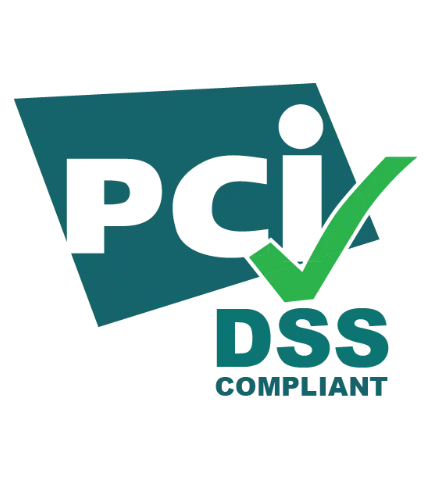
Employee Gift Cards: Uses, Financing, and Tax Settlement
Employee gift cards are one of the most popular non-salary benefits in Polish companies, combining flexibility with tax advantages. According to the latest research, 37% of employees in Poland identify gift cards as a significant benefit, and as many as 78% of employees recommend their company primarily due to an attractive additional benefits package. In practice, this means that a well-thought-out gift card implementation strategy can significantly impact team motivation, reduce employee turnover, and strengthen the organization's employer branding.
What are employee gift cards?
Definition and functions of cards as a non-salary benefit
Employee gift cards are prepaid payment instruments, typically issued within the Mastercard or Visa system, enabling employees to make purchases at selected retail or service outlets. Unlike traditional paper vouchers, gift cards are treated as monetary benefits, which has significant implications for their tax settlement and the possibility of benefiting from PIT exemptions. They function as a convenient alternative to classic material rewards, offering employees greater freedom in choosing how to use them.
The role of cards in motivating and rewarding employees
Gift cards play a key role in building employee engagement and loyalty toward the organization. Research conducted by Pluxee Poland and PBS shows that for 52% of employees, benefits represent a significant alternative when pay raises are not possible, and 57% believe that an attractive benefits package can significantly increase a company's attractiveness. Gift cards allow employers to express recognition for achievements while giving employees a sense of appreciation and the ability to independently decide how to spend the funds.
Applications of gift cards in companies
Typical occasions for giving cards to employees
Gift cards can be awarded on various occasions in employees' professional and personal lives. The most common moments include Christmas and Easter holidays, work anniversaries, employee birthdays, retirement, the birth of a child, and other important personal or company events. Such gifts build positive relationships between employee and employer, and also have a motivating effect, influencing the quality, efficiency, and effectiveness of work.
Gift card as a form of bonus and holiday benefit
In business practice, gift cards often serve as holiday bonuses or rewards for achieved goals. According to a 2025 report, 55% of employees identify occasional gifts as an important element of the benefits package, confirming the great significance of this type of benefit in compensation strategy. Employers can provide cards as additional remuneration for special achievements, project completion, or as part of a motivational system supporting a culture of recognition in the organization.
Cards as a loyalty and employer branding tool
Gift cards effectively support employer branding activities and building the employer's reputation. Companies that consciously invest in benefits more effectively attract valuable candidates and retain the best employees in the organization. A transparent and attractive benefits package, including gift cards, influences the perception of the company as a modern employer who cares about employees, which directly translates into the level of team engagement.
Types of gift cards available on the market
Single and multi-purpose cards – tax differences
The market offers various types of gift cards that differ in terms of acceptance scope and tax settlement method. Single-purpose cards are limited to a specific retail chain (e.g., Empik, Allegro, Decathlon), while multi-functional cards work across a wide spectrum of points accepting Mastercard or Visa payments. From a tax perspective, the key distinction is between prepaid cards and paper vouchers – only payment cards can benefit from PIT exemption up to 1000 PLN, while vouchers, coupons, and other tokens entitling exchange for goods or services are taxed in full.
Digital gift cards and their ecological advantages
Modern solutions, such as virtual prepaid cards, are gaining popularity due to plastic elimination and logistics simplification. Digital cards are sent directly to the employee's email address, enable contactless payments via phone with Google Pay and Apple Pay, and their activation occurs within 72 hours without delivery costs. Such ecological benefits respond to growing employee expectations regarding employers' environmental responsibility and fit into ESG trends observed in 2025.
Card personalization and adaptation to employee needs
Research from 2025 shows that 60% of employees expect benefits to respond to their current needs, and 55% value the ability for family members to use benefits. Gift card personalization can include adjusting the nominal value, choosing the acceptance network, the option to reload the card multiple times, and adding the company logo for physical cards. Cafeteria systems are also becoming increasingly popular, where employees independently choose preferred types of benefits from an available catalog.
Financing gift cards
Purchasing cards from Company Social Benefits Fund (ZFŚS) resources
The most tax-advantageous way to finance gift cards is using Company Social Benefits Fund resources. ZFŚS consists of financial resources accumulated by the employer, with the requirement to establish the fund being employment of at least 50 full-time employees (an exception applies to budget and local government units, where ZFŚS operates regardless of employee number). Gift cards purchased from ZFŚS are considered social benefits and are subject to income tax exemption up to 1000 PLN annually per employee.
Financing cards from company operating funds
An alternative source for financing gift cards is the company's operating funds. In this case, cards given to employees constitute tax-deductible costs for the employer, but the employee must pay PIT on the entire card value, and they are subject to ZUS contributions. The entrepreneur must remember that each expense should be properly documented, and the card value will be included in the employee's remuneration, from which an advance tax payment must be withheld.
Gift card as a donation – an alternative transfer form
The third option is transferring the gift card as a donation. If the entrepreneur decides that transferring the card has the nature of a donation, it will not constitute income from remuneration for the employee, but it will also not constitute tax-deductible costs for the employer. This solution is less frequently used due to the lack of tax benefits for both parties to the transaction.
Taxation and ZUS contributions on gift cards
Income tax exemption up to 1000 PLN from ZFŚS
The key benefit of financing gift cards from ZFŚS is the personal income tax exemption up to 1000 PLN annually per employee. It's worth noting that from January 2024, this amount returned to its original level after the pandemic period (2020-2023) when it was 2000 PLN. This exemption applies exclusively to payment and virtual prepaid cards – it does not cover vouchers, coupons, or other tokens entitling exchange for goods or services.
ZUS contributions depending on financing source
Gift cards financed from ZFŚS are completely exempt from ZUS contributions, regardless of card value. This is a significant saving for the employer because the lack of contributions means lower personnel costs while maintaining high benefit value for the employee. In the case of financing from company operating funds, cards are subject to full ZUS contributions as an element of employee remuneration.
Card as a non-cash benefit and tax obligations
Gift cards are treated as monetary benefits that allow spending available funds on the account by the employee. At the moment of transferring a card financed from ZFŚS, the employer should include the expense in other operating costs and properly book this operation. An employee receiving a card up to 1000 PLN annually does not need to include its value in their annual tax return, provided the card was financed from social fund resources.
Gift cards and tax-deductible costs
When can card expenses be tax-deductible costs
Purchasing gift cards from operating funds constitutes tax-deductible costs in conducted business activity. This means the employer can reduce the tax base by the value of purchased cards, provided proper expense documentation and demonstrating connection with conducted activity. However, purchasing gift cards from ZFŚS does not directly constitute a tax-deductible cost because the cost is the contribution to the Fund.
Settlement differences depending on financing source
The method of settling gift cards fundamentally depends on their financing source. The following table presents key differences:
CriterionZFŚS financingOperating funds financingPIT exemptionUp to 1000 PLN annuallyNo exemptionZUS contributionsNo contributionsFull contributionsTax-deductible cost for employerNo (the ZFŚS contribution is the cost)YesTax advanceNot withheld up to 1000 PLNMust be withheld
Tax interpretations regarding gift cards
Proper settlement of gift cards requires considering current tax interpretations. According to Art. 21 para. 1 point 67 of the PIT Act, the value of monetary benefits received by an employee, financed entirely from ZFŚS resources, is tax-free up to an amount not exceeding 1000 PLN in the tax year, while material benefits do not include vouchers, coupons, and other tokens. The entrepreneur should always consider the financing source of purchased cards to benefit from income tax exemption.
Practical aspects of implementing cards in the company
How to choose the appropriate card type for employees
Choosing the right type of gift card should consider specific employee needs and organizational goals. When making a decision, it's worth considering such aspects as card acceptance scope (stationary stores, online, foreign), personalization options, card validity period (typically 12 months), multiple reload option, and mobile application availability for card management. In the context of growing expectations for benefit flexibility, more companies are choosing universal solutions accepted across a wide spectrum of retail outlets.
Process of purchasing and transferring gift cards
The process of implementing gift cards has been maximally simplified by providers and does not require significant employer engagement. A typical process includes choosing card type and nominal value, placing an order with the selected provider, receiving cards (physical within 48 hours or virtual within 72 hours), and transferring cards to employees with proper transaction documentation. Cards can be delivered directly to employees' email addresses, through company messengers, or personally during team meetings.
Card values and amount limits in practice
In practice, gift card values are most often adjusted to the PIT exemption limit, i.e., 1000 PLN annually per employee, to maximize tax benefits. Available denominations typically range from 50 to 1000 PLN, allowing flexible adjustment of benefit amount to company budget and occasion. Some organizations decide to provide cards with higher values, consciously accepting the need to tax the excess above 1000 PLN.
Modern solution: Nais virtual prepaid cards
In response to changing market needs and growing expectations for mobility and ecological solutions, more companies are choosing virtual prepaid cards as a modern alternative to traditional physical cards. Nais virtual card is an innovative Mastercard system solution that eliminates unnecessary logistic costs and problems associated with duplicate plastic cards.
Key advantages of Nais virtual cards include full mobility without physical carrier, global acceptance in stationary and online stores, easy balance and transaction history management in one place, and personalization options adapted to company needs – from ZFŚS cards, through lunch cards, to gift cards with company logo. This solution perfectly fits 2025 trends, responding to needs for flexibility and environmental responsibility.
Example cards and market providers
Popular brands and chains offering gift cards
The Polish market offers a wide range of gift cards dedicated to employees. The most popular solutions include cards accepted in large retail chains such as Biedronka, Allegro, RTVEuroAGD, Zalando, H&M, Adidas, Decathlon, 4F, Empik, Douglas, Hebe, Media Expert, CCC, Smyk, Pepco, Żabka, and Sephora. These cards can be issued as digital eVouchers or traditional payment cards with wide acceptance scope.
Edenred, Pluxee, Multikarta gift cards and others
Among the main employee benefits providers in Poland, Pluxee (formerly Sodexo), Edenred, and increasingly popular digital solutions stand out. Pluxee offers both physical cards (magnetic and contactless) and virtual ones, with multiple recharge option and mobile application integration. Edenred specializes in lunch cards and gift cards with wide acceptance network. A modern alternative is fully digital solutions such as Nais cards, which eliminate physical card logistics and offer greater flexibility.
Cards for Allegro, Decathlon, Rossmann, Empik and other chains
Cards dedicated to specific retail chains enjoy great popularity due to the ability to tailor benefits to employee preferences. Allegro card allows shopping in Poland's most popular online store with an extremely wide assortment, Decathlon card is valued by physically active people, Rossmann meets needs related to cosmetics and drugstore items, and Empik enables purchase of books, electronics, and cultural products. Selection of a specific chain should consider team preferences and the occasion on which the card is presented.
Summary: benefits of implementing gift cards
Impact on employee motivation and satisfaction
Employee gift cards constitute an effective motivational tool that realistically affects team engagement and satisfaction levels. Research unequivocally confirms that employees value flexible benefits – 37% identify gift cards as a significant element of non-salary offerings, and 55% describe occasional gifts as an important benefit. The ability to independently decide how to use card funds gives employees a sense of autonomy and appreciation, which translates into building positive relationships with the employer and long-term organizational loyalty.
Tax and organizational benefits for the employer
From the employer's perspective, gift cards financed from ZFŚS offer significant tax benefits – PIT exemption up to 1000 PLN annually per employee and complete lack of ZUS contributions. This means real savings in personnel costs while providing valuable benefits to the team. Additionally, the card implementation process is simple and does not require significant HR department engagement, as providers offer comprehensive service from ordering to delivery.
Flexibility and universality of cards as an HR tool
Gift cards stand out for exceptional application versatility – they can be used on various occasions, from holidays through anniversaries to achievement awards. This flexibility makes them an integral tool in employer branding strategy, supporting building a reputation as an employer who cares about employees. In the context of 2025 trends, where 60% of employees expect benefits responding to their current needs, gift cards – especially in virtual form – perfectly fit modern labor market expectations.
If you're looking for a modern, ecological, and fully mobile solution for your company, Nais virtual prepaid cards can be the ideal choice, eliminating traditional logistical challenges and maximizing employee satisfaction.
FAQ
Are employee gift cards tax-exempt?
Gift cards financed from Company Social Benefits Fund (ZFŚS) resources are exempt from income tax up to 1000 PLN annually per employee. It is crucial that these are prepaid or virtual cards, because vouchers, coupons, and other tokens entitling exchange for goods or services do not benefit from this exemption and are taxed in full. Cards financed from company operating funds do not benefit from the exemption and are subject to full taxation.
Do you pay ZUS contributions on gift cards?
Gift cards financed from ZFŚS are completely exempt from ZUS contributions, regardless of their value, which represents a significant saving for the employer. In the case of financing cards from company operating funds, their value is subject to ZUS contributions as an element of employee remuneration. This is one of the main advantages of choosing social fund financing instead of company's own resources.
What is the maximum tax-exempt gift card value?
Since January 2024, the maximum gift card value exempt from income tax is 1000 PLN annually per employee, provided financing from ZFŚS resources. This amount returned to the previous level after the pandemic period (2020-2023) when the limit was 2000 PLN. If the employer provides a card with higher value, the excess above 1000 PLN will be taxed at the standard income tax rate.
Can you reload an employee gift card multiple times?
Yes, many modern gift cards, especially virtual ones, offer the option to reload with any amount multiple times throughout the card's validity period. Solutions such as Nais virtual cards or Pluxee Gift "na maxa" enable flexible benefit management and adjusting card value to changing needs or subsequent occasions. This is a much more convenient and ecological solution than issuing new physical cards on each occasion.
Do virtual prepaid cards have the same tax benefits as physical ones?
Yes, virtual prepaid cards have exactly the same tax benefits as physical cards. According to tax interpretations, the PIT exemption up to 1000 PLN applies to both physical and virtual prepaid cards, provided they are financed from ZFŚS resources. Moreover, virtual cards offer additional operational benefits – they eliminate logistic costs, are sent within 72 hours without delivery fees, and are more ecological thanks to plastic elimination.





































